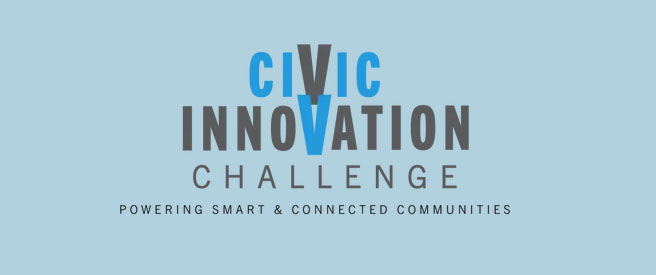The National Science Foundation (NSF), in partnership with the U.S. Department of Energy and the U.S. Department of Homeland Security, has awarded 52 teams of civic and academic partners $50,000 to support refinement of their civic concepts for ready-to-implement, research-based pilot projects addressing “communities and mobility” or “resilience to natural disaster.”
A Georgia Tech team was selected in the Communities and Mobility category, and another Georgia Tech team was selected in the Resilience to Natural Disaster category. If their projects are selected to proceed to stage-2, after this stage-1 pilot project award, each team could receive up to $1 million each to carry out these civic concepts.
Award in the Communities and Mobility Category
For this project, Georgia Tech researchers in collaboration with several Metro Atlanta transit services, are piloting a “next-generation on-demand transit system” in Gwinnett County and the city of Smyrna. The goal is to fundamentally transform accessibility to jobs, healthcare, education, and quality food. By solving the infamous first/last mile problem in a sustainable way, the pilot program hopes to fundamentally transform public transit into a flexible, scalable, and affordable system that meets the needs of all residents regardless of where they live in the service area.
The principal investigator is Pascal Van Hentenryck, the A. Russell Chandler III Chair and Professor in the H. Milton Stewart School of Industrial and Systems Engineering at Georgia Tech. Van Hentenryck heads a research lab dedicated to solving the "first/last mile" problem, traffic congestion, and fostering sustainability.His Georgia Tech co-principal investigators include: Christopher Le Dantec, associate professor in the digital media program in the School of Literature, Media, and Communication; Kari Watkins, Frederick Law Olmsted associate professor in the School of Civil and Environmental Engineering; and Subhrajit Guhathakurta, professor and chair in the School of City & Regional Planning.
Award in the Resilience to Natural Disaster Category
For this project, Georgia Tech is teaming with others to explore what kinds of data are needed to understand and enhance community-level disaster resilience in the face of multiple ongoing disasters (hurricanes, flooding, heat waves, air pollution, and pandemics) as well as their intersections with longstanding social inequities resulting from systemic racism. Georgia Tech, Savannah State University, The Harambee House, and The City of Savannah are partnering with residents in historically marginalized communities on the west side of Savannah, Georgia to show how universities and communities can work together to co-create these data, build relationships, and redefine what environmental justice looks like.
The principal investigator is Allen Hyde, assistant professor in the School of History and Sociology in the Ivan Allen College of Liberal Arts at Georgia Tech. His co-principal investigators include: Nisha Botchwey, associate professor in the School ofCity &Regional planning at Georgia Tech; Yanni Loukissas, assistant professorin the School of Literature, Media, and Communication at Georgia Tech; and Mildred McClain, executive director at the Harambee House in Savannah, Georgia.
About the Civic Innovation Challenge
The Civic Innovation Challenge is a research and action competition that aims to fund ready-to-implement, research-based pilot projects that have the potential for scalable, sustainable, and transferable impact on community-identified priorities. The Challenge is led by the National Science Foundation, in partnership with the Department of Energy and the Department of Homeland Security.

